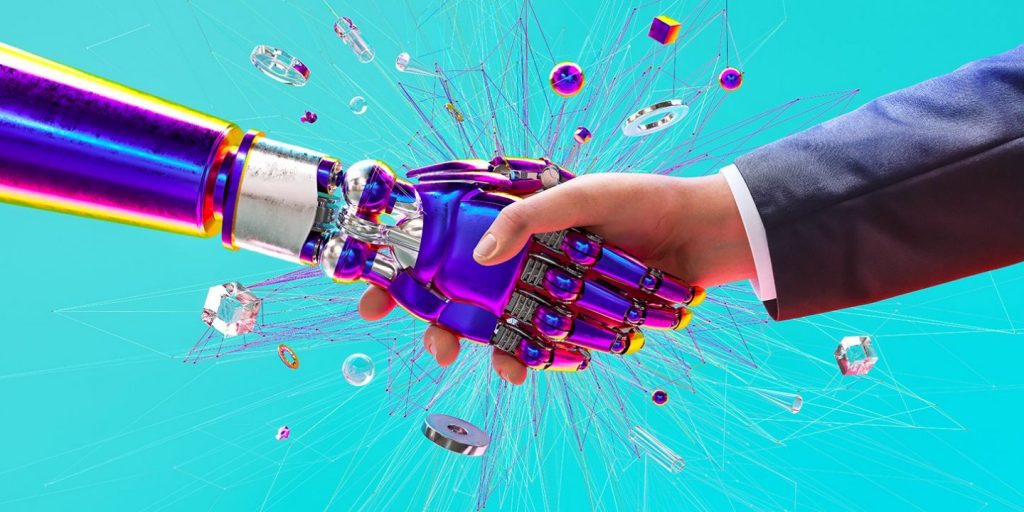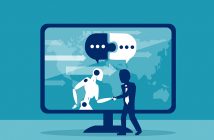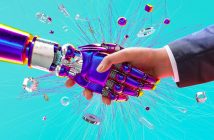Artificial Intelligence will change the world, but it is not going to take over the world and here’s why

Millennials are leading disruption in the workplace for two main reasons. Firstly, they are born into a period of rapid technology and social change. Secondly, they have their entire career ahead of them so they can’t look to retirement as an alternative to disruption. For millennials, adaption to technology is a survival skill.
In this environment, particularly in the technology-lagging project industry, it is too easy for Baby Boomer and Gen-X senior managers to gloss over disruptive technologies, instead leaning on the successful career strategies of the past which led them to their leadership positions. The senior members of a firm have the power and position to select what they regard as a winning strategy, because the boss is always right. Emerging Millennial leaders cannot afford the same ambivalence.
One of the major frustrations Millennials face is convincing the Baby Boomer and Gen-X C-suite of their companies to invest in advanced technology and AI. C-suiters often have reservations that may present as misconceptions, fear of risk and poor understanding potential benefits, there is a deeper dynamic at play. The emergence of AI often requires a paradigm change in the way we think about work. Paradigm change is not easy, and it rarely emerges from the status quo.
“Almost always the men who achieve these fundamental inventions of a new paradigm have been either very young or very new to the field whose paradigm they change.” Thomas S. Kuhn.
Millennials can expect push back, but they are well placed to be the catalyst for organisational change. They are also the likely champions of organisational understanding of AI, with the mindset to allay some of the fears that traditionalists may be experiencing.
Can we be more human with AI?
AI is essentially a mechanical mind and can be compared to the mechanical muscles (such as excavators) of earlier eras. Excavators replaced many men with shovels, increasing productivity, and redeploying workers to more sophisticated jobs with better pay and conditions. We haven’t yet reached our full potential as a society and by taking advantage of the opportunities which AI presents we have the opportunity to take another step forward.
AI can do many of the technical tasks required in our day to day work lives, enabling us to focus our energies and be more targeted to the things that really matter. The common understanding is that AI allows us to automate repetitive tasks, but although this is a comforting thought, it is an overly simplistic view. AI is already performing expert tasks which we traditionally associate with high end professional skill and experience (such as medical expertise) exercising their judgement. The technical skills which are often associated with experts will start to take a back seat to soft skills. Communication, emotional intelligence, creativity, critical thinking, collaboration and cognitive flexibility will become the most sought-after human abilities, along with our abilities to operate in teams.
Are our jobs at risk?
This is a burning topic and the tendency is to either predict the end of work as we know it, or glibly forecast that it “will all be OK in the end”. It is true that the work environment will change, and it is also true that a new balance with be established. To that extent it will be alright. The question for millennials is this; what will happen between now and this future new balance? Although there are many commentators and thought leaders willing to make predictions, in reality nobody knows. There is a reason disruption is called disruption. History shows that the world does not change smoothly, but in big and unexpected steps, which demand adaption. Fortunately, we are pretty good at adapting, and millennials as a group are probably the leaders.
The risk is not so much to our jobs, but to our perception of what our jobs look like. This is particularly so for the professional service class, whose jobs are mostly mental effort and the application of hard won experience in a specialised knowledge area. Academics Richard and Daniel Susskind’s book “The future of the Professions” makes the point that change to the traditional professions is inevitable and that in the future professional work will be done through combination of technology and people, probably by people who look very different from today’s professionals.
This is both a risk and an opportunity for millennials whose vision of their future roles and the way these will be affected by AI will emerge not from the traditional practice of learning the ropes from senior members of their firms, but by their own work innovation. Perhaps jobs are not at risk, but job descriptions will change.
In terms of those affected, there is a lot of current focus on robots. This is missing the big impact area, of cognitive workers. In reality, it is much more difficult for an AI machine to undertake physical tasks requiring dexterity in an unstructured environment, than it is for a machine to undertake complex cognitive-like tasks.
Of course, we might consider that machines cannot respond to human problems with empathy, creativity or resourcefulness. But as the technology emerges it is worth thinking about what sits behind things like resourcefulness. One author who has done much thinking in this field, is psychologist Danial Kahneman and its worth keeping an eye out for his publications.
Does adopting AI require technical expertise?
A study by Forrester found that around 70 percent of decision makers don’t think their staff have the technical capabilities to take on AI. This presents an opportunity to clear up misunderstanding on what AI is and showcase what tangible benefits it could have for your business.
The adoption barriers to AI are not predominantly technical, any more than it is necessary to understand the workings of an engine in order to drive a car. AI at its core is complex (like a modern car engine), but AI products can be designed to run their intricacies in the background and provide their insights in user friendly ways. What is important is to know the capabilities and limitations of the AI you are using. It’s important to become an informed user, and this will require some knowledge, particularly for businesses.
The prospective benefits of AI are enormous in scale and diverse in focus. The value doesn’t lie in the technology alone, but in how willing we are to challenge our own paradigm. Millennials should take the lead, because they are well placed to adapt to the emergent impacts in a way that leads our society to mitigate the human disruption and maximise advantage through adaption. Though we do not know when major changes will occur, we do know that they definitely will. AI is a change on the scale of the introduction of the internet or the motor car and companies which experiment with early adoption will be well placed to weather the inevitable change. Baby Boomer bosses do not have the answers. As Donald Rumsfeld famously said, “there are things that we don’t know that we don’t know”. Millennials can assist businesses to transform some unknown unknowns, into known unknowns, which would be a good start.
About Endeavour Programme
Endeavour Programme is an innovative project services firm that was formed through the collaboration of nearly 100 professionals based around the world, with a variety of academic backgrounds and industries including computer science, artificial intelligence, machine learning, project management, engineering and the construction and infrastructure sectors. They all share a common goal: to improve the efficiency of major projects and programmes of work across the globe.
Major projects are rarely delivered on time and within budget, but Endeavour Programme is refusing to accept this as the norm, implementing Artificial Intelligence, data analytics




